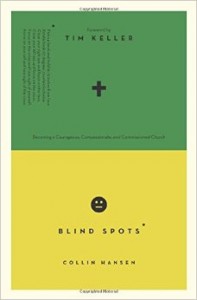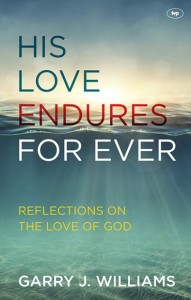All posts by Adrian Reynolds
Proclaimer Blog
Dick Lucas sermon jam
Proclaimer Blog
Dick Lucas on the need of the moment
At his last trustees’ meeting, Dick gave us one of his typical assessments of where we are as a church in the UK. Drawing on JB Philips, Dick told us that there is a great danger in the church in the UK being like an old house which has been disconnected from the mains. It will soon fall down, and what we need to be about is reconnecting those who minister to the ring main. Here’s his ABCD:
A – authority. The word of God is the power of God to create life and if we allow any kind of tradition (and there are many) to take over, then the word of God is soon robbed of its power.
B – boldness. Satan hates free speech and the bold proclamation of the gospel of Christ. Anything which hinders this – inside and outside the church – comes from the pit.
C – conviction. Pastors and preachers need to tremble at the word of God which comes from the mouth of God. Our conviction needs to extend to all the Scriptures – look how our singing is one dimensional for example, compared to the psalter.
D – delight. Dick quoted Lloyd-Jones who, when travelling around, noted that many churches are so depressing! We need to be preachers who delight in Christ himself and his in his word. That must be evident in our preaching.
Proclaimer Blog
Dick Lucas steps down as PT trustee
 Dick has been involved with PT since its inception – as many of you know. There are ways in which PT is Dick and vice versa, but we’ve been wary of making that connection too strongly (as happens in other ministries) for Dick’s own sake and for ours too. PT is bigger than Dick, he would be the first to say. But his preaching instructions formed the basis for much of what we have always done and continue to do. I heard anecdotally about a church historian the other day saying something like (sorry, no verbatim quote): Dick has done more in his quiet, unassuming way for the cause of preaching Christ in the UK church than any other UK leader.
Dick has been involved with PT since its inception – as many of you know. There are ways in which PT is Dick and vice versa, but we’ve been wary of making that connection too strongly (as happens in other ministries) for Dick’s own sake and for ours too. PT is bigger than Dick, he would be the first to say. But his preaching instructions formed the basis for much of what we have always done and continue to do. I heard anecdotally about a church historian the other day saying something like (sorry, no verbatim quote): Dick has done more in his quiet, unassuming way for the cause of preaching Christ in the UK church than any other UK leader.
When pressed, this historian said that Dick has never had another issue he’s been pushing. He’s never pursued another agenda; he’s remained focused on prayerful and faithful preaching as the fuel which builds the church under God. We’re not all Dick. And, he would say, a good thing too. We each have our own experiences and cultures to bring with us. And yet, the lessons hold true wherever you come from and whatever your background. However you assess it, many of us have many reasons to thank God for this humble servant.
Dick is 90 this year. Amazingly, he is still preaching, still sharp. But the time has come for him to step down as a PT trustee and I, for one, am enormously grateful for his wisdom and counsel. Once a week he stops by to sit on my sofa and chew the cud and, in characteristically humble mode, he listens patiently whilst I pontificate.
Join me in thanking God for this remarkable and continuing ministry.
Proclaimer Blog
William Mandell – a candle in the [biblical theological] darkness
I have been hunting around for some time for a gift which I could give to a dear preacher friend and stumbled across a book of sermons from the very first years of the 19th Century. They were by a man called William Mandell – of whom I knew nothing. I’m a bit wary of such collections – they could be liberal drivel. But when I googled his name, it turned out he was an alumnus of Queens’ College in Cambridge and – according to them – a “notable evangelical.” That was it. Not much more.
Andrew Atherstone – king of all things historical – kindly helped out. It seems that Mandell was born in Bolton in 1780 and spent the whole of his adult life in Cambridge, matriculating at Queens’ in 1799, with his MA in 1806 and BD in 1815. He was a fellow there between 1803 and 1843. He was also Senior Proctor in 1811-12 and (and this interested me most) was instrumental in getting Simeon appointed as a University Preacher. He died in 1843. In fact, Simeon dedicated one of his books to him. Well, I bought the book and read the sermons before giving it away. It thrilled me.
For Mandell was a biblical theological light shining in the darkness, long before people were really talking about this stuff in the mainstream. He could get a job here if he wanted! Here’s a snippet – all familiar stuff to us, of course, but radical for 1804. And thrilling nonetheless.
Its [the Scriptures] grand design is to testify of Christ; to direct our thoughts to Him as the glorious centre of the whole spiritual system, as the only Author of eternal life. ‘Search the Scriptures’, says our Lord for ‘they are they which testify of me.’ After his resurrection also, when he appeared to the two disciples as they went to Emmaus, ‘he expounded unto them in all the Scriptures the things concerning himself’ and again, as is related in the same chapter, when he met the whole company of the disciples, he said unto them, ‘these are the words which I spake unto you, while I was yet with you, that all things must be fulfilled which were written in the law of Moses, and in the Prophets, and in the Psalms, concerning me.’ In a word, as is declared by St Peter, ‘to Him all the prophets give witness.’ Hence it is evident, that unless from the Scriptures we attain a practical acquaintance with Jesus Christ, as the Saviour of sinners, unless, in this respect, we find Him of whom Moses in the law and the prophets did write, however, correct or extensive may be our information as to matters of a merely critical, historical, chronological or geographical nature, we do in fact, overlook the great end of their promulgation, we lamentably fail to derive from them that most important instruction which principally they were intended to convey.
We truly stand on the shoulders of unnamed and unnoticed giants who don’t even warrant a Wikipedia page.
Proclaimer Blog
Another preacher’s prayer
As part of my devotions I read a prayer a day from Valley of Vision. Sometimes these have great personal connection – other times I feel this is really something I need to hear as a preacher of God’s word – and so it was with a brief paragraph from the prayer I read today:
I come to thee in thy beloved name of Jesus; re-impress thy image upon my soul; Raise me above the smiles and frowns of the world, regarding it as a light thing to be judged by men; may thy approbation be my only aim, thy Word my one rule. Make me to abhor that which grieves the Holy Spirit, to suspect consolations of a worldly nature, to shun a careless way of life, to reprove evil, to instruct with meekness those who oppose me, to be gentle and patient towards all men, to be not only a professor but an example of the gospel, displaying in every relation, office and condition its excellency, loveliness and advantages. How little I have illustrated my principles and improved my privileges! How seldom I have served my generation! How often have I injured and not recommended my Redeemer! How few are those blessed through me! In many things I have offended, in all come short of thy glory. Pardon my iniquity, for it is great.
Amen and Amen.
Proclaimer Blog
Asking questions
 Mrs R and I were interviewed on Moody Radio the other night about our new book, And then he knew her: a biblical view of sex (you can listen to the interview here if you really want!). Janet was very kind about the book (“a gem of a book”), but maybe she is nice about everything! The strangest moment was the phone-in. As Mrs R said later, it’s when you listen to the questions that you really understand whether people have got it. Right. And in fact, it’s when you listen to the questions that you really understand where people are hurting, struggling and sinning.
Mrs R and I were interviewed on Moody Radio the other night about our new book, And then he knew her: a biblical view of sex (you can listen to the interview here if you really want!). Janet was very kind about the book (“a gem of a book”), but maybe she is nice about everything! The strangest moment was the phone-in. As Mrs R said later, it’s when you listen to the questions that you really understand whether people have got it. Right. And in fact, it’s when you listen to the questions that you really understand where people are hurting, struggling and sinning.
This translates, of course, into pastoral ministry. The preacher that is so divorced from his congregation that he doesn’t know what they understand, struggle with or downright deny is a poor preacher indeed. And yet that is precisely the model of ministry that many of us pursue. I think, in other words, that there is real value in allowing our congregations to ask questions.
There are different ways to do that. Some people I know have Q&A times after a sermon. That can work reasonably well, although in our subdued British culture you are unlikely to get some of the more revealing questions we were asked on the radio show. But the preacher should also be laying himself open before his congregation to allow them to ask questions at others times too. Mr Preacher, do you give your people this opportunity? It would almost certainly enrich your preaching and bless your listeners.
Proclaimer Blog
EMA Music
Oh, the EMA music. You try planning a music programme for 1,300 delegates from different background, cultures, liturgies and so on. It takes us ages and we fully realise we won’t please everybody all the time, but we also believe in the Romans 15 principle: “May the God who gives endurance and encouragement give you the same attitude of mind toward each other that Christ Jesus had, so that with one mind and one voice you may glorify the God and Father of our Lord Jesus Christ.”
With that in mind, here’s what we sang together with links where they’re available:
- Sovereign Grace and Love Abounding
- There is a hope that burns within my heart
- I once was lost in darkest night
- Who O Lord could save themselves?
- From heaven you came (The Servant King)
- Guide me O my great Redeemer
- There is a day
- Man of sorrows, Lamb of God
- Before the throne of God above
- Come praise and glorify our God
- Before the Lord’s eternal throne
- Salvation belongs to our God
- To God be the glory (Look and see)
- See the conqueror mounts in triumph
Proclaimer Blog
EMA Books (9)
One last thing to say about EMA books, and this is a longer list. We have a list of new and notable titles – those that did not make it to stage recommendations. There are various reasons for this – some titles arrived too late to be read thoroughly; others were not quite strong enough; others still were not particularly related to the theme. But we liked them all. Here they are, in no particular order, together with their brief comments from the EMA journal.
There are lots of strong, new titles which we haven’t got time and space to recommend from the stage. However, we want to highlight some of them to you so you can look out for them in the EMA Bookstore. All the quotes below are from PT staff or BookPanel members.
Rico Tice’s Honest Evangelism does what it says on the tin! ‘It’s a short, easy, but helpful and focused read. Just what I needed to hear and the practical help I craved.’
A wilderness of mirrors is an accurate assessment of the world we live in which, although marked by extraordinary advances, is still undeniably broken. ‘Mark Meynell has compelling insights articulating what many of us struggle to put into words.’
The Plausibility Problem by Ed Shaw is sub-titled The church and same-sex attraction, but actually it is a book about a lot more than that. It is not just another book on what the Bible says about this pressing issue, but it is about how the church responds – ‘the lessons here are invaluable for all of church life; every church leader will benefit.’
David Murray’s The Happy Christian was too late to make it as a stage recommendation, but it is ‘truly excellent.’ David applies the gospel to many areas of life, encouraging believers to be joyful rather than gloomy. One of the panel thought this ‘really helpful for me, really helpful for my pastoral work, really helpful for my preaching.’
Slightly different is Mike Horton’s Ordinary. Horton calls Christians not to measure their lives by the constant seeking of new experiences which inevitably leave us disappointed. For those who know Mike’s other books, this is shorter and simpler (!) and ‘a very useful corrective.’
Adrian & Celia have followed up Adrian’s book on sleep with one about sex, And then he knew her. This is a short biblical theology of sex which will help those married or about to be as well as those who minister to them.
Proclaimer Blog
EMA Books (8)
For the next few days, we want to replay the EMA stage recommendations in terms of books, particularly for those who were not able to make it. These are not all the books our BookPanel liked – that would be too long a list – but instead those we wanted to particularly identify as being worthy of some reading time. In each case, there is a very brief review, but the main purpose of the posts is to highlight the titles.
The final stage recommendation from this year’s EMA is Collin Hansen’s Blind Spots. I really like this book even though it is written for primarily an American audience. Collin is asking and answering the question whether a church can be courageous about the truth and the church’s call to proclaim is fearlessly whilst still being compassionate in the way it reaches out. You might think these two are mutually exclusive and Collin makes a plea to not let anything divide them. This is not Lausanne-light nor is it head-in-the-sand hyper-proclamation. I guess you may not end up agreeing with his conclusions, but I found them stimulating, helpful, concise and biblical. Over to you!
Proclaimer Blog
EMA Books (7)
EMA Books (7)
For the next few days, we want to replay the EMA stage recommendations in terms of books, particularly for those who were not able to make it. These are not all the books our BookPanel liked – that would be too long a list – but instead those we wanted to particularly identify as being worthy of some reading time. In each case, there is a very brief review, but the main purpose of the posts is to highlight the titles.
Someone asked me recently to give a one line summary of the last twelve months in the Christian book world. My answer? Lots of really good, strong titles, but I’ve not read anything really, really stand out. That was before I read Garry’s latest book. His love endures for ever is a reflective book on the theme of God’s love. It’s jam packed with theology and encouragement for meditation on God’s word (as well as lots of illustrations from the classical world: Garry is nothing if not educational!). What makes this book stand out for me is that it takes a core biblical theme (the love of God) and looks into it, well, biblically.
That’s important because the love of God is often quoted as a reason for all kinds of bad doctrines. Evangelicals are sometimes tempted, therefore, to dismiss the idea. But we cannot and must not, and Garry shows us a better way. I read this book a chapter a day in my devotions and at the end texted my friend – “I think I’ve found the stand out book of the year.”

